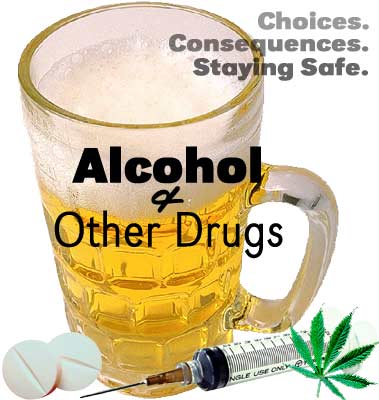 Intoxication- It's only natural
Intoxication- It's only natural
The New Scientist publishes a piece on the Intoxication Instinct, (permanently archived at the Media Awareness Project) that analyzes the research and debunks the myths around why human beings seek to alter their consciousness. The authors take a long an interesting look at how the pleasure principle has driven sentient beings, including the animal kingdom, to ingest plants for their intoxicating effects since the beginning of time. They examine why we do drugs.
The answer is straightforward. We seek intoxication for a simple reason that we are almost too scared to admit - we like it. Intoxication can be fun, sociable, memorable, therapeutic, even mind-expanding. Saying as much in the present climate is not easy, but an increasing number of researchers now argue that unless we're prepared to look beyond the "drug problem" and acknowledge the positive aspects of intoxication, we are only seeing half the story - like researching sex while pretending it isn't fun.
...Ronald Siegel, a psychopharmacologist at the University of California, Los Angeles believes there is a strong biological drive to seek intoxication. "It's the fourth drive," he says. "After hunger, thirst and sex, there is intoxication." Whether we are seeking pleasure, stimulation, pain relief or escape, at the root of this drive, he says, is the motivation to feel "different from normal" - what has sometimes been called "a holiday from reality". Some people reach this state through travel, books, art, roller coasters, sport, religion, exploration, love, social contact or power. Others use intoxicants. "It's the same motivation," says Siegel. "We wouldn't live if we didn't seek to feel different."
They go on to point out the obvious limitations in current research on the subject.
Yet the mainstream debate on drugs, alcohol and tobacco seems unable to acknowledge that there is anything positive at all to say about intoxication. Instead it is locked into a sterile argument between prohibitionists and those who want to reduce the harmful effects by, for example, making heroin available on prescription. Both groups start from the belief that psychoactive substances are inherently harmful but disagree on what to do about it.
And they point out an alternative approach.
Some activists, however, are starting to argue for an entirely different attitude to intoxication. One prominent critic of the debate is Richard Glen Boire, director of the Center for Cognitive Liberty and Ethics in Davis, California. He believes that intoxication is not just a part of human nature, it is a basic human right. "Why should it be illegal to alter your style of thinking?" he says. "As long as you don't do any harm to anyone else, what you do in your own mind is as private as what you do in your own bedroom." Boire advocates changes to the law that would allow people to experiment with psychoactive substances at home or in designated public places. "It's the right of people to explore the full range of consciousness, and our duty as a society to accommodate that," he says.
"According to the latest drug data from the United Nations ( World Drug Report 2004 ), about 185 million people worldwide have used an illicit substance in the past 12 months. That's around 1 in 20 of the adult population." Many more than that admit to taking an illegal substance at least once in their lifetime. If that doesn't suggest an inherent human desire to get "high", I don't know what does.

0 Comments:
Post a Comment
Subscribe to Post Comments [Atom]
<< Home